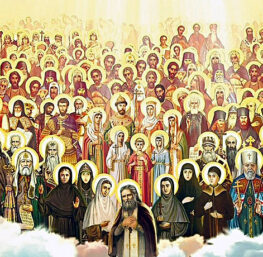FrontPageMagazine.com | Mark D. Tooley | Mar. 3, 2009
Activists at the World Social Forum (WSF), having gathered 130,000 anti-globalization activists to Belem, Brazil across 6 days early in February, enthusiastically decided that global taxation is the solution to the economic meltdown.
Meeting annually since 2001, the WSF rallies anti-capitalist crusaders from around the world, fancying itself as the anti-imperialist alternative to the World Economic Forum that meets concurrently in Davos, Switzerland. More specifically, it professes to be an “alter-globalization” movement that resists “exploitative economic globalization” and promotes “value-based forms of social and economic organization.”
Inevitably, the United Nations and the World Council of Churches (WCC) are heavily represented at WSF. Reporting about its role, the WCC enthused that its salivating activists see the economic downturn as a wonderful opportunity to “press for long-overdue, radical reforms.” Indeed, they are already mobilizing for the G20 summit in London in early April.
The WCC hosted a panel of radical economists and activists at this year’s WSF to advocate the global socialism that the WCC has advocated in varied forms for 40 years. “There is a fundamental difference of approach between those who try to refund financial capitalism and those who see a need for a shift of paradigm in the world’s economy,” explained Brazilian economist Marcos Arruda from the Institute on Policy Alternatives for the Southern Cone (PACS), according to a WCC report. “What is needed is not just some regulations here and there, but real alternatives to the current system which represent a profound transformation.” Arruda advocated a new “solidarity economy” liberated from the harsh “logic of private profit” and that are environmentally sustainable.
Starting in the 1960’s, the WCC embraced Marxism in the form of Liberation Theology, even directly funding armed revolution through its infamous “Program to Combat Racism,” which helped to empower despots like Robert Mugabe in Zimbabwe. For the last 20 years, even the WCC has become a little demure about its open enthusiasm for socialism. Instead, it marches in lock-step with anti-globalization militants and intones against “neo-liberalism.” Events like the WSF allow the WCC and other global malcontents to grouse about the free market’s injustices. And the global meltdown allows the WCC more easily to regurgitate old themes of economic grievance.
Martin Gück, from Kairos Europe, a “network of church-related justice movements,” attacked “casino capitalism,” when speaking to the WCC. More specifically, he targeted famed free marketer Milton Friedman’s dictum that “a company’s only responsibility is to increase profits for its shareholders.” Gück fumed: “It is no longer acceptable that only the interests of shareholders – and even those understood exclusively in terms of maximization of short-term profits – are taken into account when international companies make decisions.” He insisted that the preference for “private and public actors” in the international finance system must end, as they are “neither legitimized democratically nor accountable to the society.”
Naturally, there were many green enthusiasts at the WSF. “Behind the financial crisis is the ecological one,” French ecological activist Bertille Darragon told the WCC and other likeminded activists. “We need to abandon the model of unlimited economic growth and start thinking in terms of ‘de-growth’ décroissance – that is, to decrease the consumption of resources and energy, beginning with the very rich but including the middle classes both in the North and the South.”
Fully agreeing with Darragon was German Protestant pastor and NGO head Wilfried Steen, who complained about his country’s supposed greed much as American leftists bewail their own. “We Germans have a level of consumption that would require 1.3 planets to be sustainable,” he bewailed. “From a theological viewpoint every human being has a place in God’s creation, so all have the same right to live and to consume.” Like most Green extremists, Steen sees successful capitalist nations, like Germany, as parasitically exploiting the planet. They do not consider that Germany, as the world’s fourth largest economy, produces far more than it consumes, to the benefit of Europe and most of the world.
Allowing free people in free economies to govern themselves and rule over their own economic decisions of course deeply disturbs the WCC and it leftist allies at the WSF. They want international governance to displace sovereign nation states. “We call for the United Nations, reformed and democratized, to be put at the centre of the reform of the financial system,” declared Marta Ruiz of the European Network on Debt and Development (Eurodad), who was speaking on behalf of the financial crisis caucus of to which the WCC belongs.
. . . more



